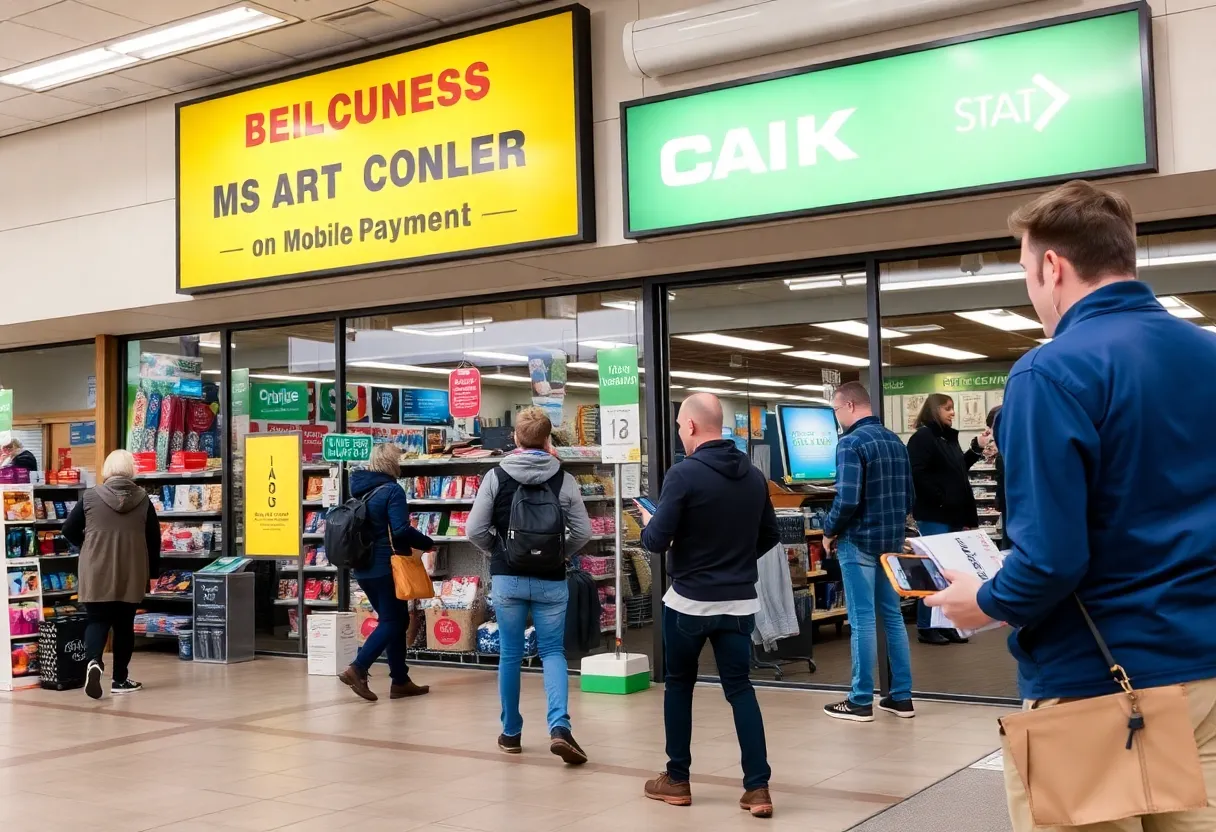Oklahoma City, October 16, 2025
Oklahoma City businesses, including gas stations and retailers, have begun warning customers about limited change availability due to an ongoing coin shortage. This situation affects cash transactions, leading some owners to encourage digital payments or exact amounts to streamline operations. Supply chain disruptions in coin minting and production are at the root of the issue, which is impacting daily transactions, wait times, and overall business efficiency in the metropolitan area.
Coin Shortage Prompts Payment Warnings at Oklahoma City Businesses
Oklahoma City — Several businesses across the metro area, including gas stations and small retailers, have begun posting signs to warn customers about limited change availability due to an ongoing coin shortage. This measure aims to manage customer expectations and reduce transaction delays in daily operations.
The shortage primarily affects the ability of these establishments to provide exact change for cash purchases. Owners are encouraging alternative payment methods or customers bringing exact amounts to keep lines moving efficiently. This issue has become noticeable in recent days, impacting routine transactions at locations like convenience stores and fuel stations throughout the city.
Supply chain disruptions lie at the heart of the problem, specifically those hindering the minting and distribution of coins. Reduced production at minting facilities has led to inconsistent supplies reaching local vendors. Combined with economic uncertainty, which has lowered foot traffic in some areas, businesses report heightened strain on their cash handling processes.
Impact on Local Operations
Daily operations at affected businesses face direct challenges from the shortage. For instance, at convenience stores like QuickMart, staff spend extra time managing limited coin reserves, sometimes resulting in longer wait times during peak hours. Retailers note that without sufficient change, they risk turning away cash-paying customers or delaying service, which can hurt sales in an already cautious economic climate.
The push toward digital payments has gained traction as a workaround. Many locations now prominently display signage promoting card, mobile app, or contactless options to bypass the coin issue entirely. This shift not only helps maintain smooth service but also aligns with broader trends in consumer behavior favoring electronic transactions.
Efforts to Address the Shortage
At the national level, production efforts are underway to alleviate the shortage. Facilities responsible for coin minting are increasing output to replenish supplies, though experts indicate that full relief could take several weeks. In the meantime, businesses in Oklahoma City continue to adapt by implementing temporary policies.
Business advocates are calling for federal support to help small enterprises modernize their payment systems. Such incentives could include grants or subsidies for installing advanced point-of-sale equipment that supports diverse payment types. This push aims to build resilience against future disruptions, ensuring that local shops remain competitive regardless of cash availability.
Broader Economic Context
The coin shortage emerges amid wider economic pressures affecting small businesses nationwide, but its effects feel particularly acute in metro areas like Oklahoma City. With consumers more selective about spending due to uncertainty, any added friction in transactions can compound challenges. Retailers report that the issue exacerbates existing difficulties, such as fluctuating supply costs and reduced in-person shopping.
Historically, coin shortages have occurred during periods of economic stress, often tied to decreased circulation from hoarding or vending machine use. This instance follows similar patterns, with disruptions traced back to manufacturing delays and logistical hurdles. Local business owners emphasize that while the situation is manageable short-term, long-term solutions are essential for stability.
Community responses vary, with some customers adapting quickly by using digital wallets or rounding up purchases to minimize change needs. Others express frustration over the inconvenience, highlighting the ongoing reliance on cash among certain demographics, including older residents or those without access to banking services.
Future Outlook and Recommendations
As production ramps up, businesses anticipate gradual improvement in coin availability over the coming weeks. In the interim, experts recommend that shoppers prepare by carrying exact change when possible or opting for digital methods to support local establishments. This cooperative approach can help mitigate disruptions and preserve the vital role of small retailers in the community.
Oklahoma City’s business landscape demonstrates adaptability in the face of this challenge. By communicating transparently through signage and promoting flexible payment options, these enterprises are working to maintain customer loyalty while navigating supply constraints. The situation underscores the interconnectedness of local operations with national supply chains, reminding all involved of the need for diversified strategies in uncertain times.
The shortage also spotlights opportunities for innovation. As federal incentives potentially materialize, smaller businesses could upgrade to systems that reduce cash dependency, fostering a more efficient and inclusive economy. For now, the focus remains on practical steps to keep commerce flowing smoothly in the metro area.
Frequently Asked Questions (FAQ)
Why are Oklahoma City businesses posting signs about limited change?
Several businesses across the metro area, including gas stations and small retailers, have begun posting signs to warn customers about limited change availability due to an ongoing coin shortage.
What is causing the coin shortage in Oklahoma City?
The shortage stems from ongoing supply chain disruptions affecting coin minting. Reduced production at minting facilities has led to inconsistent supplies reaching local vendors.
How are businesses like QuickMart responding to the shortage?
Owners like those at QuickMart Convenience urge digital payments or exact change to avoid delays. Many locations now prominently display signage promoting card, mobile app, or contactless options.
What impacts does the shortage have on daily operations?
This issue, exacerbated by reduced foot traffic during economic uncertainty, impacts daily operations. Staff spend extra time managing limited coin reserves, sometimes resulting in longer wait times.
What is being done to resolve the coin shortage?
The U.S. Mint is ramping up production, but relief may take weeks. Business advocates are calling for federal incentives to modernize payment systems, helping small enterprises adapt.
Key Impacts of the Coin Shortage on Oklahoma City Businesses
The following chart outlines the primary features and responses related to the coin shortage affecting local businesses.
| Impact Area | Description | Business Response |
|---|---|---|
| Supply Chain | Ongoing disruptions affecting coin minting | Encourage digital payments or exact change |
| Daily Operations | Impacts from reduced foot traffic and economic uncertainty | Post warning signs to manage expectations |
| Transaction Delays | Limited change leading to longer wait times | Promote contactless and mobile options |
| Resolution Efforts | U.S. Mint ramping up production | Call for federal incentives to modernize systems |
| Timeline | Relief expected in several weeks | Implement temporary policies for adaptation |





